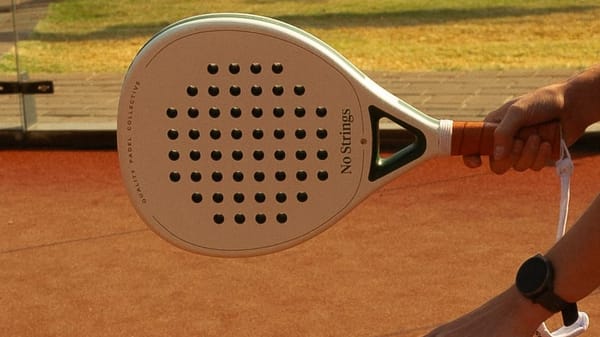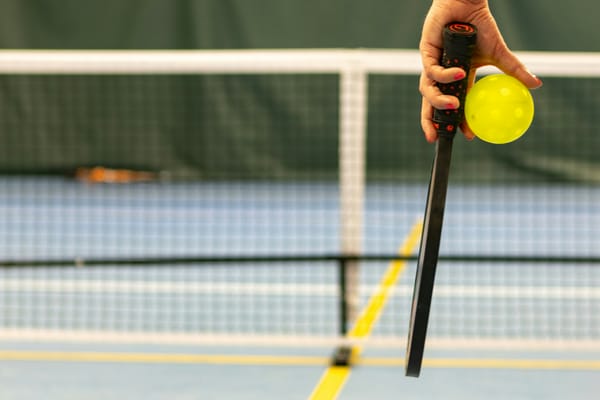More than 4 players can be fun, too.

In this week’s edition of The Clubhouse, we’re diving into creative ways to enjoy padel with more than the usual four players. Whether you’re hosting a casual gathering with friends or a club event, these round-robin formats will keep everyone engaged and the competition lively. Let’s explore three formats that will bring out the competitive side of you.
Top 4 Round Robin Formats for Padel
1. Progressive Partner Rotation
Overview: Rotate partners after each match to ensure everyone plays with and against everyone else. This format is great for keeping things fresh and giving everyone a chance to be partnered with others.
How It Works:
- Number of Courts: At least two courts (8 players)
- Rotation: After each game/set, players switch partners and opponents. Another option is to have a time-based approach (for example: 10-15min timer per game) whereby teams need to try score as many points as possible without giving away too many.
- Scoring: Track individual scores after each game, with the player having the highest cumulative score at the end of all rounds declared the winner.
2. King of the Court
Overview: A dynamic format where the goal is to reach and stay on the "King’s Court".
How It Works:
- Number of Courts: At least two courts ideally.
- Setup: Designate one court as the "King’s Court" and others as "Challenger Courts".
- Play: Winners from the Challenger Courts move up to the King’s Court. Losers from the King’s Court move back to the Challenger Courts.
- Objective: Stay on the King’s Court for as long as possible.
3. Fixed Partner Round Robin
Overview: Players are paired with a fixed partner for the entire round-robin series. Each team competes against all other teams.
How It Works:
- Number of Courts: At least two courts (but can do it with one court too, it just means some may need to wait their turn to get on the court).
- Matches: Each team plays against every other team.
- Scoring: Matches can be played to a set number of games or within a fixed time.
- Objective: The team with the most wins at the end of the round-robin series is the winner.
Conclusion
In summary - keep it simple, get everyone involved, and be a good (old) sport.

PS- if you haven't already, check out first episode of the Clubhouse from a few weeks ago below.

Cheers,
🎾 The No Strings Team






